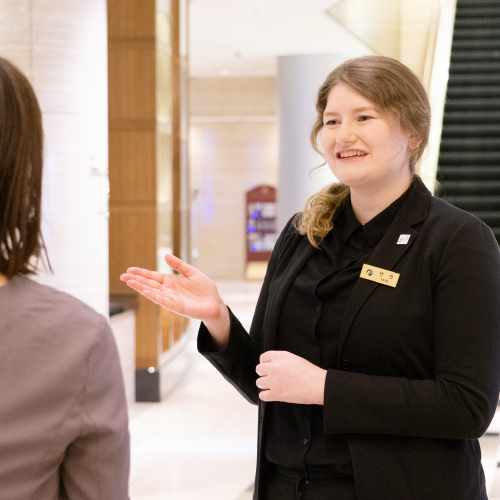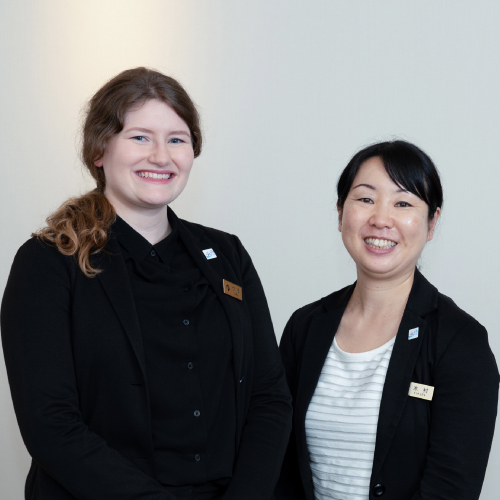Job Description
This job has taught me that I love the work of interpreting
I’ve been with this company for about a year now. I’m the team leader of the Sales Convention Department. My job is mainly interpreting and managing large academic societies and banquets. Specifically, I respond to inquiries from overseas in English, create quotations, create restaurant menus and guest room materials for non-Japanese customers, offer guidance when overseas customers come on the day of the event, and interpret at events. I’m glad that overseas guests can use our hotel with peace of mind because I’m also a non-Japanese citizen.
I really love the job of interpreting. Although there is pressure because I have to interpret on the spot, it’s worth it. I believe that I’m able to gain extensive experience and be involved in important meetings in various fields because of my job as an interpreter that utilizes my strength of English skills.
I value relationships at my work. English and Japanese are undoubtedly important as I’m an interpreter. However, I do believe that heart-to-heart communication is the foundation. I’m careful to pay attention to what the customers are thinking.






